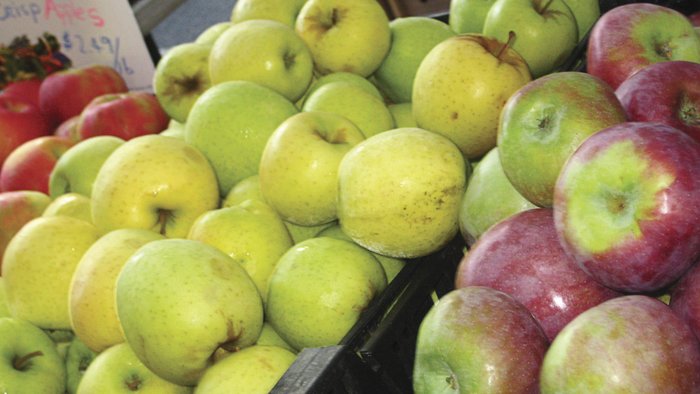By now, members of the Jersey City Food Co-op thought they’d be well on their way to having a brick-and-mortar store open for shoppers in search of affordable fresh food. Launched in 2010, the Co-op had planned to open a cooperatively-run affordable organic grocery sometime in 2012.
While the collective currently has about 100 members – to whom the co-op refers as “owners” – and continues to make strides towards opening an actual store, the organization now recognizes that these plans will have to wait.
“We have a distribution center and an office space near Journal Square, and we are selling food to our members,” Emilio DeLia, president of the co-op’s board of trustees, said last week. “But we did an assessment and realized that the conditions, both in the economy at large and within our organization being what they are, it really wasn’t possible to open a store this year. We realized there may need to be a step between where we are now and our ultimate goal of opening a retail store.”
Instead, the co-op is now exploring more economical ways to grow its membership base and distribute affordable fresh food to a wider audience.
Great food at affordable prices
Currently operating out of St. Paul’s Lutheran Church, the Jersey City Food Co-op is modeled after the Park Slope Food Co-op in Brooklyn.
“The Park Slope Food Co-op is mentoring us through this process. The Jersey City Food Co-op is a collectively owned business,” Co-op founder Gillian Allen told the Reporter in May 2011. “In a nutshell, the Jersey City Food Co-op is an initiative to open a grocery store that will sell [products] to its members who have invested their time and their financial resources to building this business. The grocery store will sell naturally-grown food at affordable prices.”
The farms providing items to the co-op are based in southern New Jersey, New York, and Pennsylvania.
____________
Currently to become an “owner” people can join the co-op for a lifetime investment fee of $50. In addition to this investment, co-op owners must also give at least four hours of their time each month to running the business. Anyone can become an owner, whether they’re a Jersey City resident or not.
In exchange for their time and money co-op owners can purchase items online from the Co-op Preshop. The Preshop allows owners to buy groceries and other items before the brick-and-mortar store is opened. Grass-fed, locally-raised meat and poultry, farm-fresh eggs from free-range hens, certified naturally grown fruit and vegetables, and baked goods are among the items that can be bought through the Preshop, according to the co-op’s web site.
The array of items offered are familiar enough that most shoppers won’t be turned away by uber-exotic choices.
The organization has formed relationships with such businesses as Eden Organic, Frontier Natural Food Co-op, Regional Access, a New York state-based distributor, Lancaster Farm Fresh, and Zone Seven, among others, to supply the items available through the Preshop.
Any food ordered online from the Preshop must be paid for and is not covered in the members’ $50 initial investment.
Food orders can be placed on a biweekly basis and can be picked up from the church, also on a bi-weekly basis.
If the cooperative is successful in opening its planned grocery store, owners will eventually be able to do their shopping in-person rather than online.
Interim steps
The online Preshop is, however, an interim step and opening the retail store remains the co-op’s end goal.
On the advice of a team of business and philanthropic leaders from across the state who recently met with the organization, the Jersey City Food Co-op is considering other ways to offer a store-like experience for shoppers without having to open an actual market.
“One option is to have a warehouse set up where people can come and shop,” DeLia said. “The other option is some sort of mobile refrigerated truck that could travel to different neighborhoods in Jersey City and sell the food.”
These options, DeLia added, would require fewer resources and would have less overhead than a grocery store but “would still help us get to that end goal.”
E-mail E. Assata Wright at awright@hudsonreporter.com.
